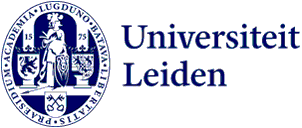Organisation
Update 17 February 2022: Restrictions eased, many measures lifted
We are delighted that the end of coronavirus restrictions is in sight. We hope you are well and, like us, looking forward to meeting up again with students and staff at our beautiful faculty.
These restrictions have required a great deal of flexibility and adaptability from us all in the past two years, and this will continue to be a challenge in the coming period. Covid is still here and so we will be easing the restrictions step by step at the faculty – in a safe manner, for everyone’s well-being.
Corona Check and self-tests
The University is and will remain a safe place if we all act responsibly.
- Stay at home if you have Covid-related symptoms, have tested positive or have to quarantine.
- Always do the Corona Check before coming to our buildings. This gives the most recent guidelines on quarantine.
- As a preventive measure, students and staff are still advised to use self-tests. Students and staff from the University can order free self-tests from Zelftestonderwijs.nl. Remember, it may take a few days to receive the tests.
- When at the faculty, keep to the Campus Protocol and follow the instructions in the buildings.
- Ventilate your classroom/lecture room/workplace regularly.
- Give each other room in corridors, other passing areas and where possible in offices, lecture rooms and classrooms.
- If you have any concerns, contact your manager.
Teaching from 25 February 2022
- We can welcome everyone again for teaching activities. The limitation of 75 students in a room will no longer apply.
- The published timetable remains as it is. The possibilities of teaching with no capacity limitations will be considered for each course. This will be done in consultation with the management of the study programmes (Course Coordinators and Programme Directors).
- 1.5m distancing will no longer be compulsory, but it is advisable to keep some distance from others if possible.
- Examinations will be scheduled on location as much as possible. If you want to hold an online examination, this must be discussed with the Programme Director.
- Always make sure that all up-to-date information for students about courses (teaching/exams) is provided in Brightspace.
- Deregistering (in Brightspace) for a class or exam on location for Covid-related reasons remains important so that we can continue to provide a safe work environment for everyone. The possibility to deregister will remain in each course environment in Brightspace. During this transition phase, it therefore remains obligatory to provide an online alternative for these students.
- Reservations for a study space must still be done via SharedDesk.
Face masks no longer compulsory, but still allowed
From 25 February, the wearing of face masks at the faculty will no longer be required. Anyone who wishes to may, of course, still wear one.
Work and travel
- The advice on working from home is now: work no more than half your working hours at the faculty (if possible). If you would like to work more hours at the faculty, for example to conduct research, you should discuss this with your manager.
- The faculty policy on working from home and possible support can be checked online.
- Travel abroad is allowed. Read more about the travel policy on the student website and staff website.
Events, inaugural lectures, PhD Ceremonies and graduation ceremonies
- A maximum group size no longer applies. Events, lectures, graduation ceremonies, inaugural lectures and PhD ceremonies can proceed again with maximum capacity. During this transition phase, the organiser may decide to set a maximum to ensure the event can be held in a safe and responsible way.
- Staff and study associations can send requests for events and lectures to the service desk.
The ‘new normal’
As stated in the University update, after almost two years of Covid measures, we will now start looking at what the ‘new normal’ will be. We will be doing this across the full breadth of our research, teaching and flexible work.
